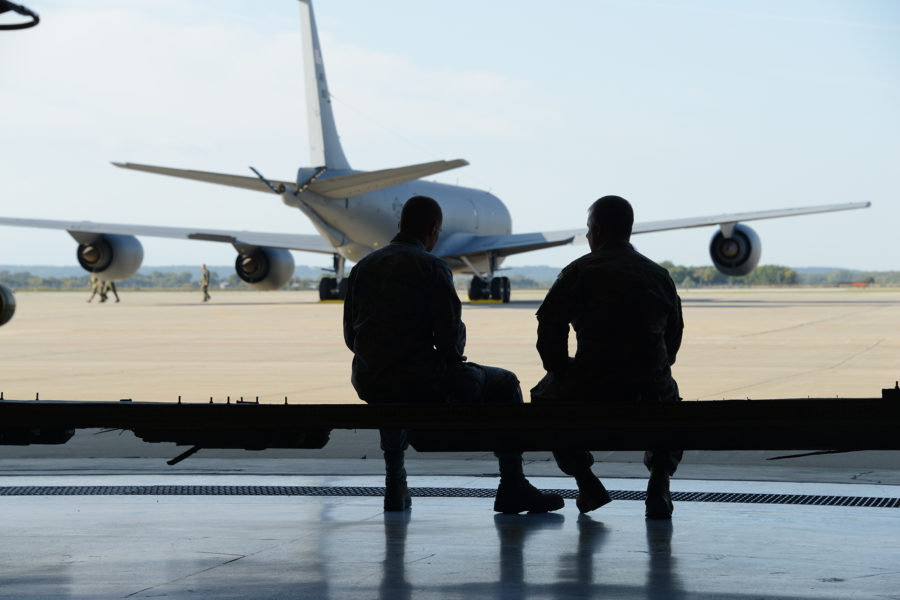Veteran suicides dropped significantly in 2019, with a 7.2 percent year-over-year decline in the adjusted suicide mortality rate marking the largest single-year decline since 2001, newly released data from the Department of Veterans Affairs show.
All told, 399 fewer suicides were recorded among veterans in 2019, the most recent year for which data are available, than in 2018. The 6,261 total suicides recorded were the fewest in a year since 2007. The average number of veteran suicides per day also declined—from 18.2 per day in 2018 to 17.2 in 2019.
Still, the adjusted rate of suicides among veterans continues to exceed that of the general population—in 2019, there were 31.6 suicides per 100,000 veterans, compared to 16.8 per 100,000 non-veteran adults. That gap, however, did narrow in 2019.
“Taken together, much work remains to be done. As long as Veteran suicide numbers are annually in the thousands, there is no sense of mission accomplishment or satisfaction within VA, despite being heartened by unprecedented decreases in Veteran suicide,” the VA’s 2021 National Veteran Suicide Prevention Annual Report, released Sept. 8, concludes.
The report also indicated that male veterans remain far more likely to die by suicide, with a rate of suicide more than twice the rate among female veterans. The overall decline in suicide rate in 2019 included declines for both male and female veterans, though, with the rate among male veterans in particular declining for the first time in nearly a decade.
“Suicide prevention remains a top priority for VA, with the most significant amount of resources ever appropriated and apportioned to VA suicide prevention,” VA Secretary Denis McDonough said in a statement. “Suicide is preventable, and everyone has a role to play in saving lives.”
The Department of Defense released its own report on suicide in the ranks in 2019 back in October 2020, finding that nearly 500 military personnel killed themselves that year. That number was also a decline from 2018, of about 50 service members.
It remains to be seen whether the 2019 declines continued into 2020, when the COVID-19 pandemic hit and upended millions of lives. But while the VA does not have finalized 2020 data on deaths from the Centers for Disease Control and Prevention, it has been monitoring suicide-related indicators for veterans receiving Veterans Health Administration care.
Analysis of that data, the report said, showed no sign of increases in suicide or other suicide-related indicators.
Those results follow other studies of the general population that showed no increases in the suicide rate during the COVID-19 pandemic in 2020, despite fears by some to the contrary.
The VA did find, however, an increase in “all-cause mortality”—deaths by any cause—among veterans receiving VHA care. And that increase, the study states, “exceeds the number of VA deaths that have been directly attributed to COVID-19.”
Again, those findings echo other academic studies of the general population that have observed excess death counts that are not all attributed directly to COVID-19.
“It … remains to be seen the impact of COVID-19 beyond the data and surveillance tools and means currently available to VA,” the report states. “Furthermore, the potential for a negative rebound effect in the proximal years following initial impact of wide-scale catastrophic or seismic events witnessed within modern history merits vigilance paired with aggressive prevention and intervention preparation and implementation.”
Military members and veterans experiencing a mental health emergency can contact the Veteran Crisis Line at 1-800-273-8255. Veterans, troops, or their family members can also text 838255 or visit VeteransCrisisLine.net for assistance.

